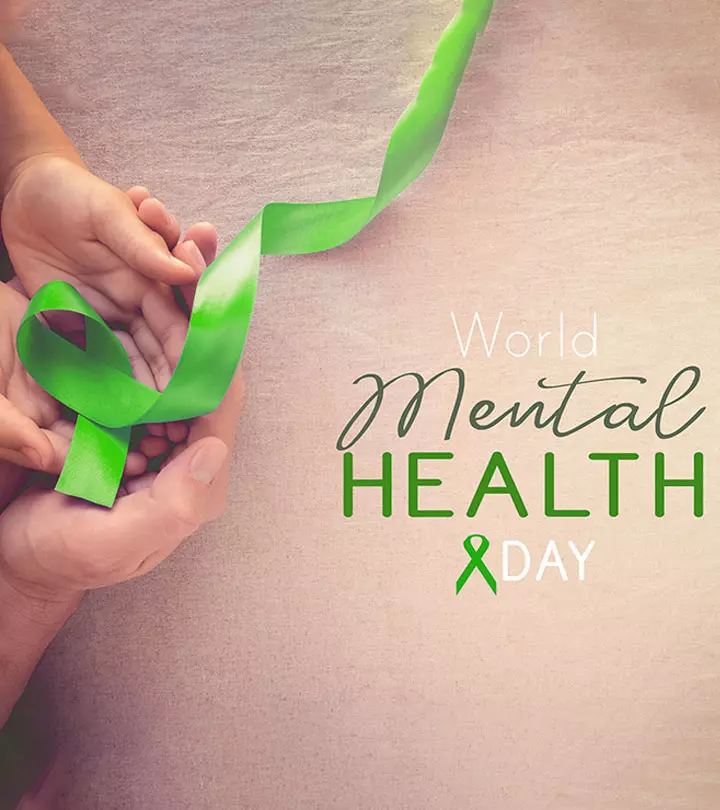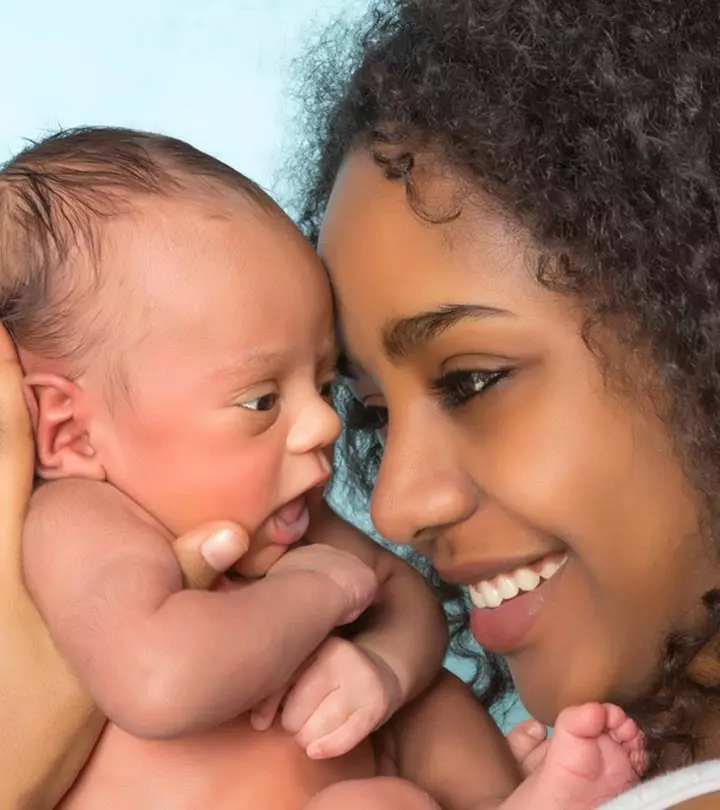
Image: Shutterstock
Menopause is the event in a female’s life cycle when the ability to reproduce naturally comes to an end. It is a gradual process and the age it starts can vary from person to person. On average it has been observed to start in the late 40s for most women (1). You can be sure of reaching menopause when you go an entire year without having a period. Menopause is marked by the inability to ovulate and conceive naturally.

However, the advancement of medical science has seen the development of many artificial techniques for conceiving children even after the onset of menopause. Techniques like in-vitro-fertilization (IVF) and egg freezing have gained popularity due to their successes. Let’s discuss and learn about some of the ways women can still attain pregnancy through medical intervention:
1. In Vitro Fertilization

Image: Shutterstock
Whether you are going through premature menopause or a timely one, you can choose to go for In Vitro Fertilization (IVF). There are two ways you can proceed with this treatment; either with your already frozen eggs or with the help of a donor’s eggs. In selecting a donor, you can opt for someone familiar or a total stranger depending on your preference. A woman in her twenties with a similar cultural background and good health would be a good choice for being the donor. The eggs from the donor are fertilized with the sperm of the male partner in a laboratory. The fertilized egg is then transferred to the womb of the intended mother, or in some cases a surrogate. The best way to start with treatment would be to consult an expert so that they can suggest the appropriate method after the proper examination (2).
2. Donor Egg Programme

Image: Shutterstock
The donor egg program is designed for women who cannot conceive naturally because of menopause or miscarriages, or failure at IVF treatment. The important part is to choose a donor. She can be someone known from the family or an anonymous donor from egg donor agencies. In both cases, the donor is selected with proper screening. Doctors examine the medical history and current mental, physical and genetic health. Donors have to be healthy, someone in the age group of twenty-one to thirty (twenty-one is the legal age). To make women conceive, donor eggs are fertilized by combining them with sperm, and then the fertilized egg is implanted in the woman’s uterus. To receive these eggs successfully, a woman is prepared physically (3).
3. Egg Freezing

Image: Shutterstock
It is good to opt for egg freezing in your early reproductive age if you know your current priorities are different and your plan to conceive comes at a later stage in life. Or, if you have a family history of early menopause, egg freezing will be a smart option. With frozen eggs, you can get pregnant later in life, irrespective of whether you have reached menopause or not. This procedure does not require sperm as eggs are not fertilized before freezing. Egg production is increased in women by hormone injections. More eggs increase the chances of pregnancy, and the earlier you freeze them, the better. As eggs mature, they are removed from the uterus and frozen. Frozen eggs do not lose their quality even after long years. Therefore, you can come back anytime and use them (4.
4. Ovarian Rejuvenation

Image: Shutterstock
You can reverse or delay your menopause with ovarian rejuvenation. It’s an attempt to revive your reproductive hormones by the injection of PRP (platelet-rich plasma). This procedure activates the dormant eggs and reverses the aging of the ovaries. After one or two months of the process, the natural menstrual cycle starts, which enables retrieving of matured natural eggs. Either you will become pregnant naturally, or the eggs will be used for IVF treatment. Age plays an essential factor in the success rate of this method. Consult a fertility specialist as it comes with its side effects (5).
5. Surrogacy

Image: Shutterstock
Surrogacy is essentially an arrangement where another woman (surrogate) will have and deliver your baby for you. There are two types of surrogacy, traditional and gestational. Traditional surrogacy involves placing the father’s sperm in the uterus of the surrogate mother. In the latter, the mother’s eggs are gathered and fertilized with her partner’s sperm externally and then placed into the surrogate’s uterus. You can choose a surrogate within family and friends or reach out to medical centers that provide surrogacy treatment. Surrogates should be adequately examined in all aspects before proceeding to ensure a physically and mentally healthy baby. It is likely to be more successful than other fertility treatments. However, it can be a long, complex, and expensive process (6).
6. Adoption

Image: Shutterstock
If you are too fearful of trying out other options, then you could consider adoption. It doesn’t involve artificial inseminations, too many medical tests, or health and financial risks. It may also be something you want to try if you have already tried several fertility methods but didn’t find any success. There is a lot of stigmas attached to adoption, but it doesn’t have to be that way. Several beautiful children out there only need a home and a family to love, and through adoption, you will be doing them a huge favor. You will also be gifting yourself a beautiful child who can be a part of your family, one that you will soon grow to love. The process of adoption can be a long one as it involves a lot of legal aspects. It may help to get in touch with good adoption centers. Go ahead and talk to other parents who have also adopted children, so you know what they’re going through.
Being pregnant later in life comes with many complications and risks, but all hope is not lost, thanks to the wonders of science and technology. We’ve listed out some most effective methods in the hope that you cherish motherhood even after menopause. See an expert and talk in detail to know what is best for you and make a decision. What are your thoughts on this? Let us know in the comments below!
References
- Postmenopausal Pregnancy: A Case Report
https://www.ncbi.nlm.nih.gov/pmc/articles/PMC7299412/ - In Vitro Fertilization
https://www.ncbi.nlm.nih.gov/books/NBK562266/ - Oocyte donors’ awareness on donation procedure and risks: A call for developing guidelines for health tourism in oocyte donation programs
https://www.ncbi.nlm.nih.gov/pmc/articles/PMC6883756/ - Social egg freezing: risk benefits and other considerations
https://www.ncbi.nlm.nih.gov/pmc/articles/PMC4467930/ - Ovarian Rejuvenation Through Platelet-Rich Autologous Plasma (PRP)-a Chance to Have a Baby Without Donor Eggs Improving the Life Quality of Women Suffering from Early Menopause Without Synthetic Hormonal Treatment
https://pubmed.ncbi.nlm.nih.gov/32700285/ - Surrogacy: Ethical and Legal Issues
https://www.ncbi.nlm.nih.gov/pmc/articles/PMC3531011/
Community Experiences
Join the conversation and become a part of our nurturing community! Share your stories, experiences, and insights to connect with fellow parents.












